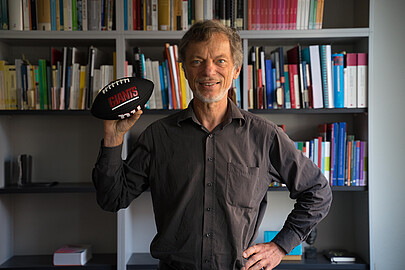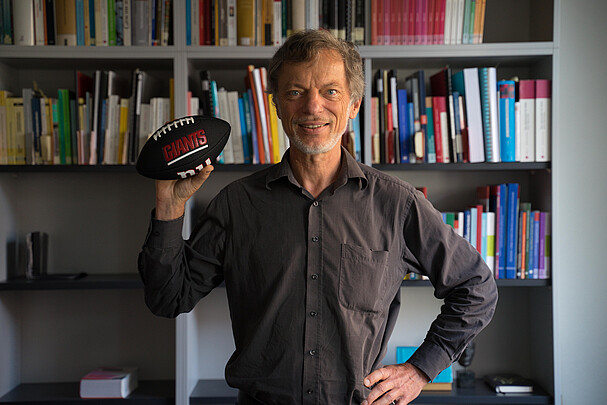History Didactics as a branch of science of history concerns itself with the institutional historical learning in school, educational institutions and higher education institutions as well as with the value of past realities in society. In this context, history is understood as cultural practice which concerns each and every one of us rather than just a subject in school or a science. Considering the ineluctable “presence of history in our lifeworld” History Didactics are committed to the big paradigms of the social science: purpose, memory, meaning. However, its central category for now almost 40 years is the historical awareness as the link between perceived past, witnessed present and anticipated future.
Considering the prominent position which is given to Modern Times in the curricula of all federal states History Didactics place their focal point on the time after 1789, especially on German History of the 20th century. Topics from other eras such as Antiquity, Medieval Times and Early Modern Times also take effect in a balanced manner.
Seminars with a more lifeworld oriented focus address the theory and history of historical culture, viz. their dimensions, concepts, institutions and audiences. The studies focus on forms, media and function of historical remembrance from an intercultural perspective, types of narrative formations of meaning and historical orientation, the models of communicative, collective and cultural memory, a selection of remembrance culture objectivations such as museums, film/TV, journalistic products, digital contemporary witness archives, the field of “Public History” as well as methods and objectives of adult education. In Hannover History Didactics pursue a narrative form of knowledge production which means that they define historical thinking and learning as understanding, forming and presenting (historical) narratives. Additionally, they strive to enable students to empirically investigate teaching-learning processes in school and in society. Instrumental for this form of research are the proven methods of reconstructive social research but also subject inherent methods, especially hermeneutic methods.
In order to realise their goals History Didactics at the LUH are reliant on the cooperation with other teaching methodologies, primarily with language subjects and educational sciences.
Members of the Subject Area History Didactics
Management of the Subject Area

 © Marie-Luise Kolb / LUH
© Marie-Luise Kolb / LUH
30167 Hannover

 © Marie-Luise Kolb / LUH
© Marie-Luise Kolb / LUH
Staff

 © Michael Matthey/ LUH
© Michael Matthey/ LUH
30167 Hannover

 © Michael Matthey/ LUH
© Michael Matthey/ LUH

 © Marie-Luise Kolb / LUH
© Marie-Luise Kolb / LUH
30167 Hannover

 © Marie-Luise Kolb / LUH
© Marie-Luise Kolb / LUH



